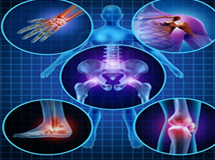Courses or workshops on professional skills, such as communication, teamwork, and ethical considerations in computing.

A study program in computing typically provides a comprehensive education in various aspects of computer science and information technology, preparing students for careers in software development, systems analysis, data science, and other related fields. Below is a detailed description of a typical program, which may vary across institutions.
Covers the basic concepts of computer science, including algorithms, data structures, programming fundamentals and introduces the fundamental principles of computer architecture and the organization of computing systems.
Explores advanced data structures and algorithms for problem-solving and efficient computation.
Software Engineering:




Examines the principles of computer networking, including protocols, network design, and security.
Focuses on the protection of computer systems, networks, and data from security breaches.
Covers the basics of artificial intelligence, including machine learning algorithms and applications.
Explores techniques for discovering patterns and insights from large datasets.
Teaches the development of mobile applications for platforms such as iOS and Android.
Covers cloud architecture, virtualization, and the deployment of applications on cloud platforms.
A culminating experience where students apply their skills to develop a significant software project or conduct research in a specific area of computing.
Many programs include opportunities for internships or co-op experiences to provide students with real-world exposure to the industry.
Courses or workshops on professional skills, such as communication, teamwork, and ethical considerations in computing.
Emphasis on staying current with emerging technologies and trends, including courses on the Internet of Things (IoT), blockchain, and other relevant technologies.
Program Highlights:
Core Courses:
Specializations:
Software Development: Focus on advanced programming, software design, and application development.
Cybersecurity: Study the techniques and tools to protect information systems from cyber threats.
Data Science: Learn to analyze and interpret complex data to support decision-making processes.
Network Administration: Gain expertise in managing and securing computer networks.
Artificial Intelligence and Machine Learning:Explore the concepts and applications of AI and machine learning in various domains.
Cutting-Edge Curriculum: Stay ahead with a curriculum that incorporates the latest trends and technologies in computing and IT.
Real-World Experience: Gain practical skills through internships, co-ops, and industry projects.
Supportive Learning Environment: Benefit from academic advising, career services, and personal support throughout your studies.
Global Network: Connect with a diverse and dynamic community of students, alumni, and industry professionals.
Career Development: Access to workshops, career fairs, and networking events to help you succeed in the tech industry.
Conclusion:
The Course of Science in Computing and Information Technology is your pathway to becoming a leader in the tech industry. Our comprehensive program, designed to blend theoretical knowledge with practical skills, prepares you to meet the demands of a rapidly evolving technological landscape. Whether you aspire to develop cutting-edge software, protect critical information systems, or analyze complex data, our program equips you with the tools and expertise needed to excel.



